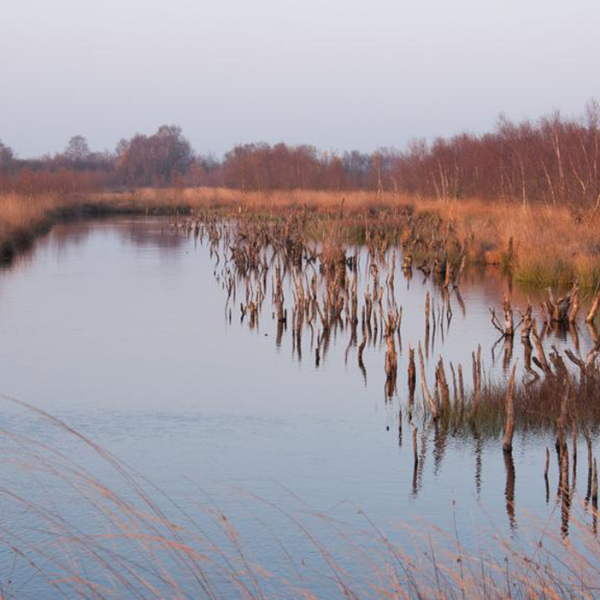Research into stimulation of quaking bog formation

Research into stimulation of quaking bog formation
Witteveen+Bos, Bureau Waardenburg, ATKB, the University of Amsterdam and EIS are investigating how the formation of quaking bogs can be stimulated by using ‘ecosystem engineers’ – plant species that form floating root mats and thus play a key role in quaking bog formation – and by preventing crayfish and geese from feeding on them. Quaking bogs are unique, rare pieces of wetland nature and form a necessary biotope for many plant and animal species (some of which are endangered). The research project will run until late 2020 and is being conducted at the request of the Dutch Forest and Nature Reserve Owners Association (VBNE).
Wetland areas are among the landscapes with the greatest variety of species in the Netherlands, because they consists of many different habitats such as open water with aquatic plants, reed beds, and bog woodland. Under the right conditions, waters with aquatic plants turn into quaking bogs, which eventually develop into more acidic reed beds and woodland. If nothing is done, however, there will be no quaking bogs left in the Netherlands within a couple of decades, even though these quaking bogs are highly important for many protected and rare plant and animal species in the Dutch fen areas. The existing quaking bogs are disappearing because they age into more acidic reed beds, or due to over-fertilisation, drying out and atmospheric nitrogen deposition, while hardly any new quaking bog formation occurs.
Previous research suggests that the water and soil quality is improving in many locations. A lack of suitable plants (ecosystem engineers) and the presence of large numbers of crayfish and geese will then probably become a significant bottleneck for the development of new land formation stages, such as quaking bogs. In this research project, the consultancies will conduct model studies and other studies as well as field experiments to revitalise the quaking bog formation on a landscape scale and to gain control over the factors that are instrumental in this.